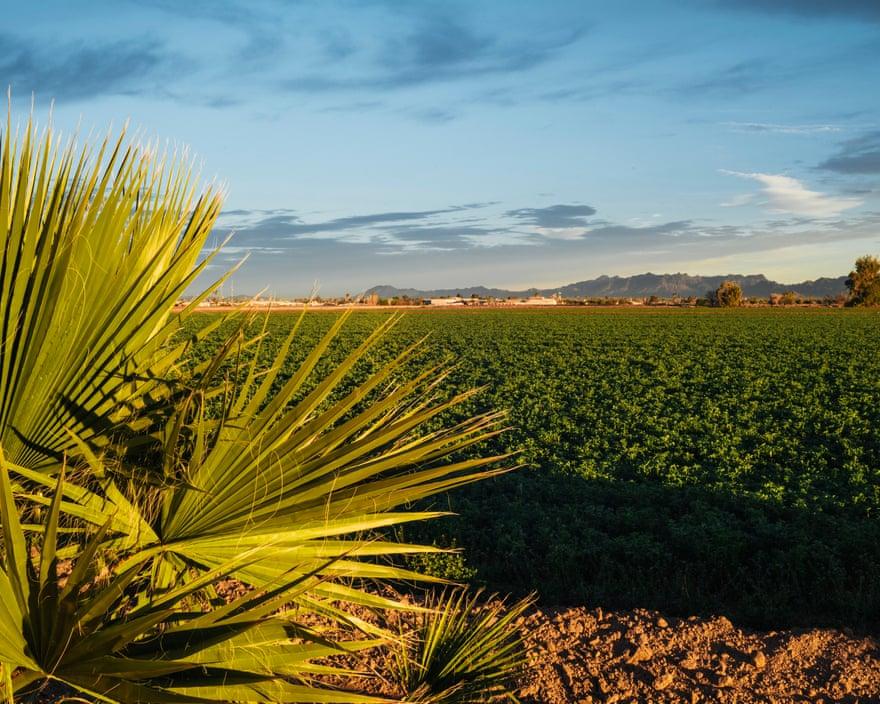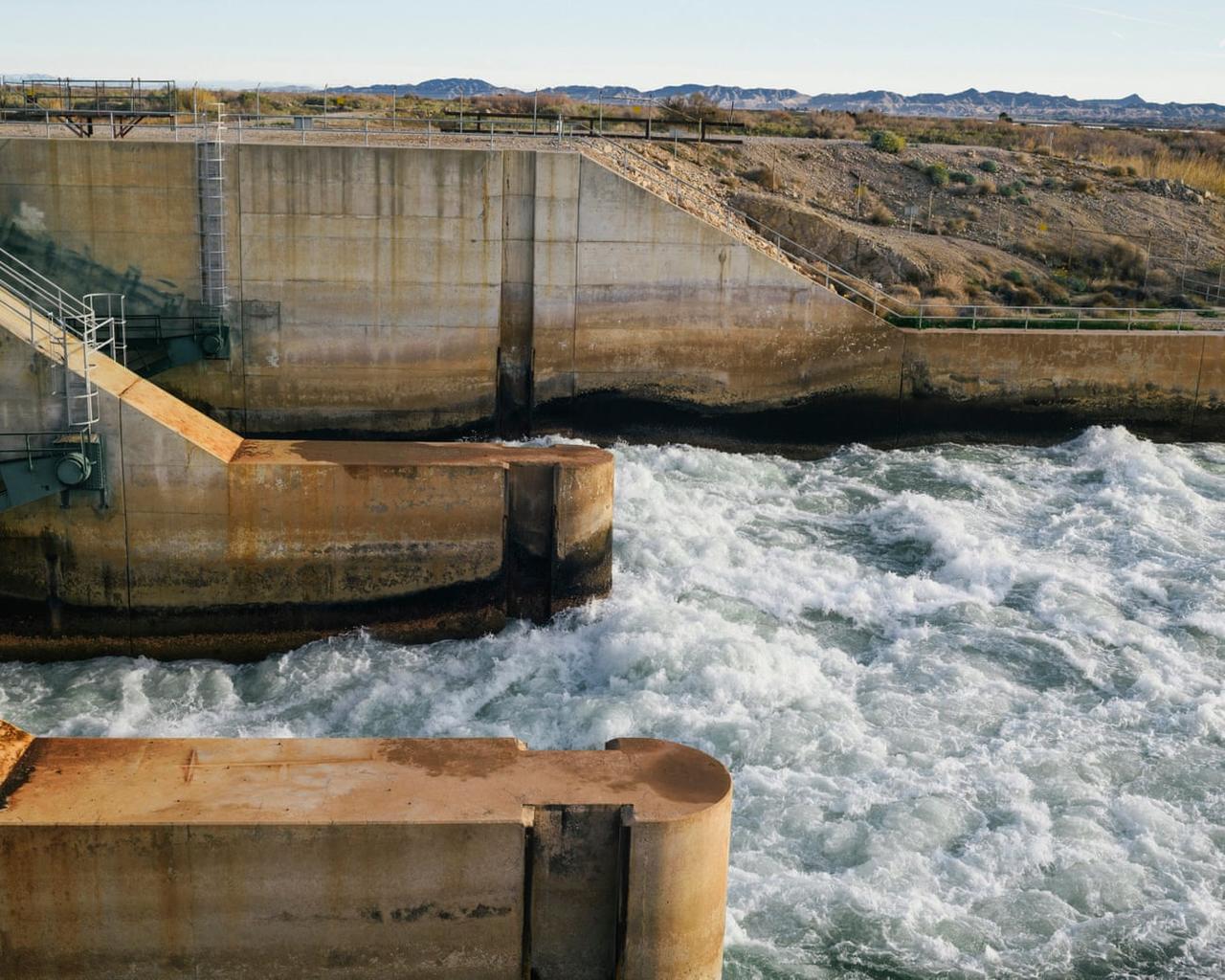Saudi Arabia is exploiting a farming loophole in California which allows a tiny, poverty-stricken desert town to use as much water as it needs for agriculture, for free – circumventing harsh water restrictions imposed in the Saudi Kingdom, reports The Guardian.
In particular, the Saudis are after alfalfa to feed their cows – setting up shop in Blythe, California – home to roughly 21,000 people (6,000 of whom live in prison) about four hours east of Los Angeles. Fondomonte Farms is a subsidiary of Saudi-based Almarai, one of the largest food production companies in the world. Every month, Fondomonte ships boat-loads of alfalfa to a massive port stationed on the Red Sea, just outside Saudi Arabia’s King Abdullah City.
The state of the Colorado river can be traced, in part, to a water claim approved by the federal government all the way back in the 1800s when a British gold rush-era prospector named Thomas Blythe first laid eyes on the desert expanse adjacent to the rushing Colorado river and submitted a water claim application to the federal government.
That 1877 water claim, now owned by the Palo Verde Irrigation District, ensures that Blythe has “unquantified water rights for beneficial use”; in other words, as much water as those living and farming within the district could possibly need in this water-scarce region, and for free.
…
With the Saudi Arabian landscape there being mostly desert and alfalfa being a water-intensive crop, growing it there has always been expensive and draining on scarce water resources, to the point that the Saudi government finally outlawed the practice in 2016. In the wake of the ban, Almarai decided to purchase land wherever it is cheap and has favorable water conditions to produce enough feed for its 93,000 cows. –The Guardian
The system to move water to Blythe is “really unique,” according to JR Echard – assistant manager of the Palo Verde Irrigation District. “We’re in the desert, but we live next to a massive river and have rights to it.“
Fallowing contracts
One thing that’s apparently not making the Saudis happy are “fallowing contracts,” in which farmers are paid not to plant a portion of their fields so that water can be diverted into the cities such as Los Angeles and San Diego. The Palo Verde Irrigation District is currently three years into a 30 year contract for this, which – to the Saudis – “drives the company mad” according to an employee, as “alfalfa-hungry Fondomonte would prefer to plant every inch.”
Despite the poverty affecting 23% of Blythe residents (vs. 12% nationally), the Fondomonte has been a boon. “Everyone wants to be working here,” the employee, “Jim,” told The Guardian.
Not only does the company employ more than 100 locals full-time – as compared with the part-time or seasonal labor found on most farms – and with 401ks, vacation and health insurance, but they also support local farmers by purchasing their alfalfa to add to their bales and ship overseas.
“There are a lot of exporters here,” Jim said of US farmers and farm operations selling their crops to overseas markets. “They have been exporting from here for 30 or 40 years. I don’t see how this farm is any different.”
“The Saudis, they’re here buying up at a good price,” Echard explained. “They’re just the same as everyone else. They buy local. It’s a shot in the arm for the economy.” –The Guardian
When Almarai embarked on its ambitious land grab in the western US, environmentalists and average citizens alike were outraged. “Saudi Hay Farm in Arizona Tests State’s Supply of Groundwater,” read the headline from one NPR article from November 2015. “Saudi Arabia is Outsourcing its Drought to California,” penned Gizmodo.
That said – UC Davis professor and alfalfa expert Dan Putnam wonders why there’s little to no outrage over crops which are far more water intensive, such as almonds, which California ships 70% of overseas. “Or oranges? Or lettuce?”
Putnam, along with many farmers I spoke to, urges people to consider how much water crisscrosses the globe in the current supply chain. It’s not just alfalfa, and it’s not just agriculture. People will find goods at the cheapest prices, and companies in areas with unstable resources will relocate elsewhere.
…
On our way back from the dam to the district offices, Echard drove me up along the access roads to get a panorama of the canals, and past some bright fields of alfalfa. We then drove to a part of valley where, in partnership with various environmental organizations, the Palo Verde Irrigation District had planted a large grove of trees to revive some of the habitat that once stretched so abundantly along this part of the Colorado. In August, he told me, it can be 115F (46C) outside, but under this canopy of trees, it might be 20 degrees cooler.
And while Almarai’s loophole doesn’t seem to be raising many pitchforks right now, one has to wonder how the Saudi takeover of Californian alfalfa land – using free water – will go over during the next drought.
via ZeroHedge News https://ift.tt/2OuBzd2 Tyler Durden


